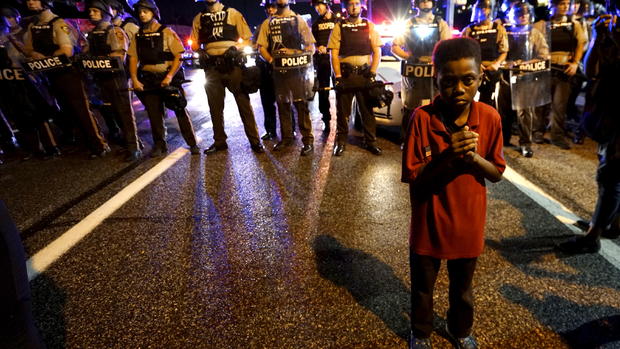Grand juror in Michael Brown case appeals gag order on panel
ST. LOUIS -- A member of the grand jury that declined to indict a white Ferguson police officer in the shooting death of Michael Brown is challenging a federal judge's dismissal of her lawsuit that sought to allow her to speak publicly about those secret proceedings.
That woman, identified only as "Grand Juror Doe," wants the St. Louis-based 8th U.S. Circuit Court of Appeals to overturn U.S. District Judge Rodney Sippel's May decision to toss her bid to speak out about her time on the panel.
Sippel sided with lawyers for St. Louis County Prosecuting Attorney Robert McCulloch in ruling the former grand juror needs to go to a state court for permission to talk publicly. Her lawsuit in state court is scheduled for a hearing Tuesday.
McCulloch's spokesman didn't immediately respond to a message seeking comment Monday.
The lawsuits have claimed McCulloch mischaracterized the jury's findings when he announced last November that the panel declined to indict Ferguson police officer Darren Wilson in the August 2014 shooting death of 18-year-old Brown, who was black and unarmed. That shooting -- and the grand jury's clearing of Wilson -- fueled protests that at times turned violent in a case that spawned the national "Black Lives Matter" movement.
Grand Juror Doe's lawsuits, filed by the American Civil Liberties Union of Missouri, allege McCulloch wrongly implied all 12 jurors believed there was no support for any charges. Under Missouri law, an indictment requires agreement by nine of the panel's dozen members, and grand jurors are sworn to secrecy under the threat of contempt or other charges.
Wilson, who since has resigned, also was cleared by a Justice Department investigation.
Grand Juror Doe insists her experiences on the panel -- it met on 25 days over three months, hearing more than 70 hours of testimony from about 60 witnesses -- "could aid in educating the public about how grand juries function" and help advocate for changing how grand juries are conducted in Missouri.
An unresolved lawsuit on behalf of a reporter for The Guardian newspaper is pressing a judge to force McCulloch's office to make public his emails during the months the grand jury was empaneled. And four activists also are asking a Missouri appellate court to overturn a St. Louis County judge's ruling last month that tossed out their lawsuit seeking a special prosecutor to review the way McCulloch oversaw the process.
